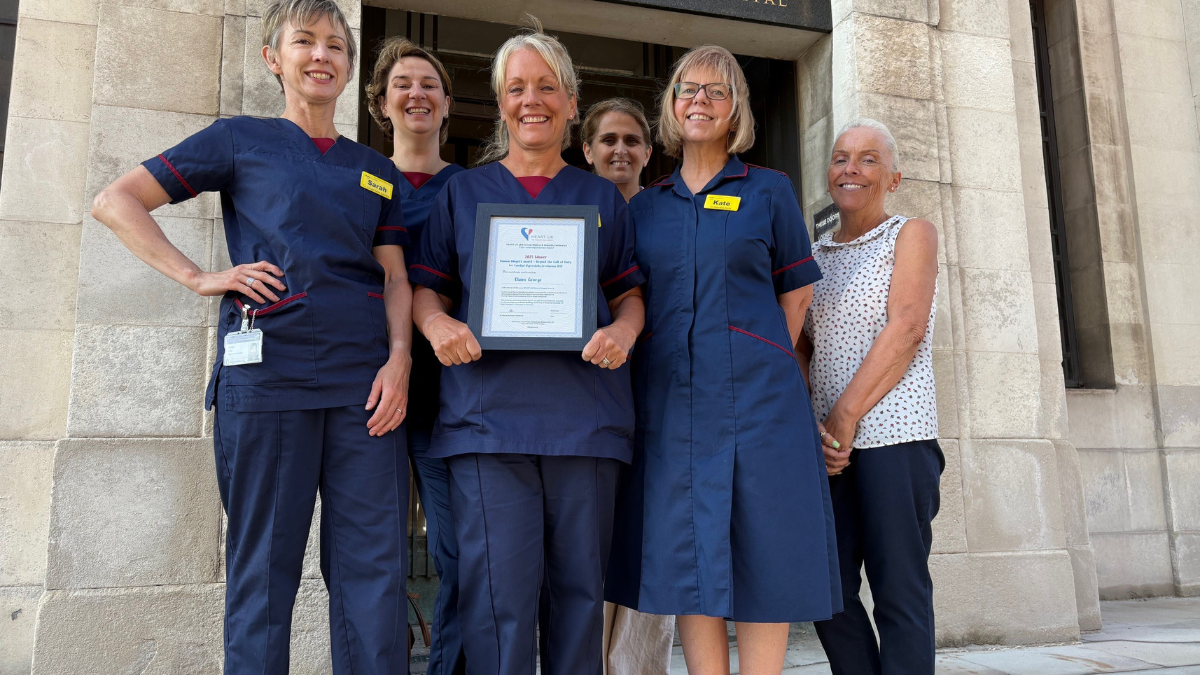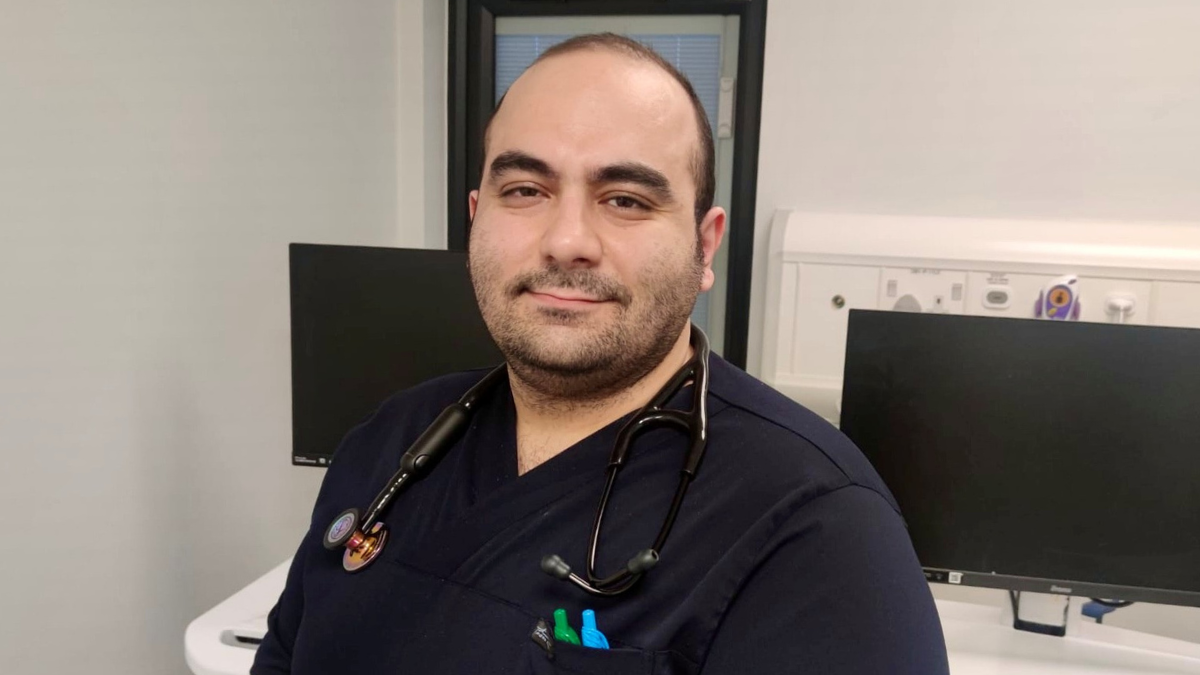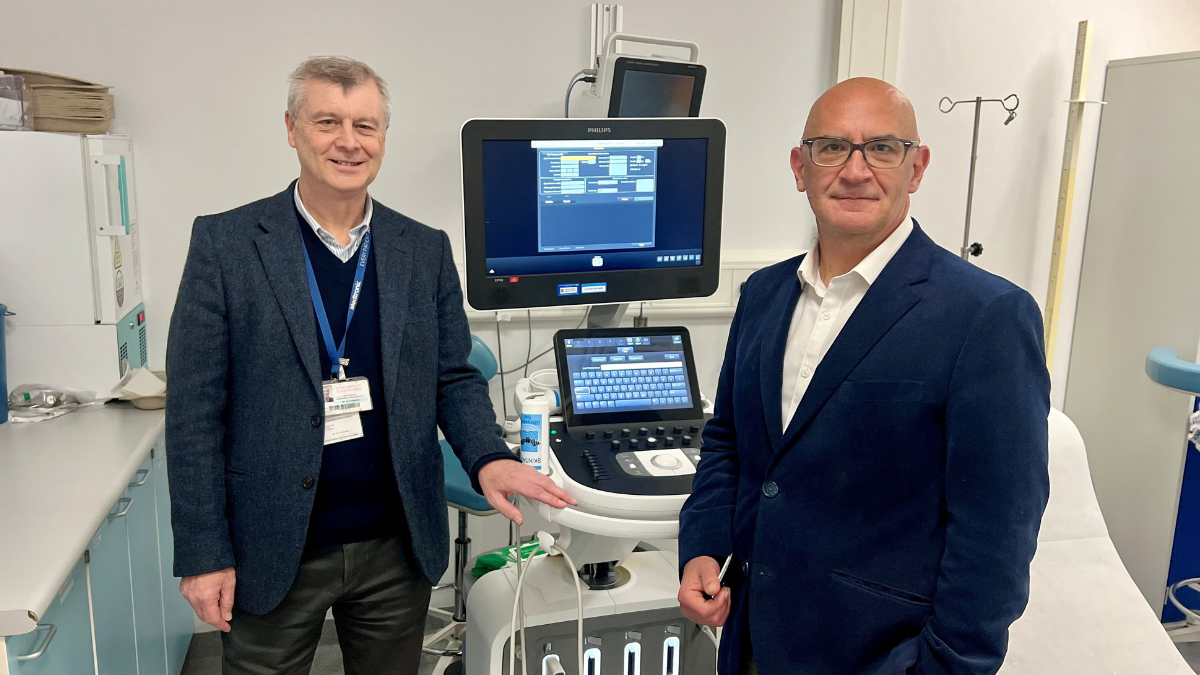Major honour for QEHB nursing team's screening service
Published on 30/07/2025

A screening service, which identifies people who have a life-threatening inherited condition, has received a national award.
Members of the West Midlands Familial Hypercholesterolaemia Service (WMFHS) Team have been honoured with Heart UK’s prestigious Rianna Wingett Award for 2025 which was presented at the charity’s conference at University of Warwick in July.
Elaine George, head of the service which is run by nurses at Queen Elizabeth Hospital Birmingham (QEHB), said: “This is very much a team award and I am delighted and honoured that we were chosen as the winner.
“It was an honour that someone had taken time to nominate us and that a panel of experts agreed we go above and beyond for our patients.”
The annual award is in memory of a young girl who sadly died from Familial Hypercholesterolaemia (FH). This is an inherited condition that is passed down through families and is caused by a fault in the gene that controls the way cholesterol is handled in the body.
FH causes a high cholesterol concentration in the blood, leading to an increased risk of premature coronary heart disease.
The service is the only nurse-led genetic testing service in the country and was set up in 2017 with the same six members of team from QEHB who work for it today.
The WMFHS team see patients meeting criteria for FH genetic testing in a local GP practice, rather than a hospital-based clinic, which helps to break down barriers to access.
The team were chosen for the award for going above and beyond for FH patients, especially to facilitate testing in different communities.
The nomination came from a QEHB consultant and was then considered by the charity.
The nomination said: “On numerous occasions I’ve been astonished by the extent to which the team has gone above and beyond to facilitate testing in our harder to reach communities, including recent immigrants living in temporary accommodation and patients with learning disabilities.
“By running clinics in local GP practices, the WMFHS has built strong relationships with primary care which indirectly helps to educate and raise awareness of FH amongst primary care colleagues.”


